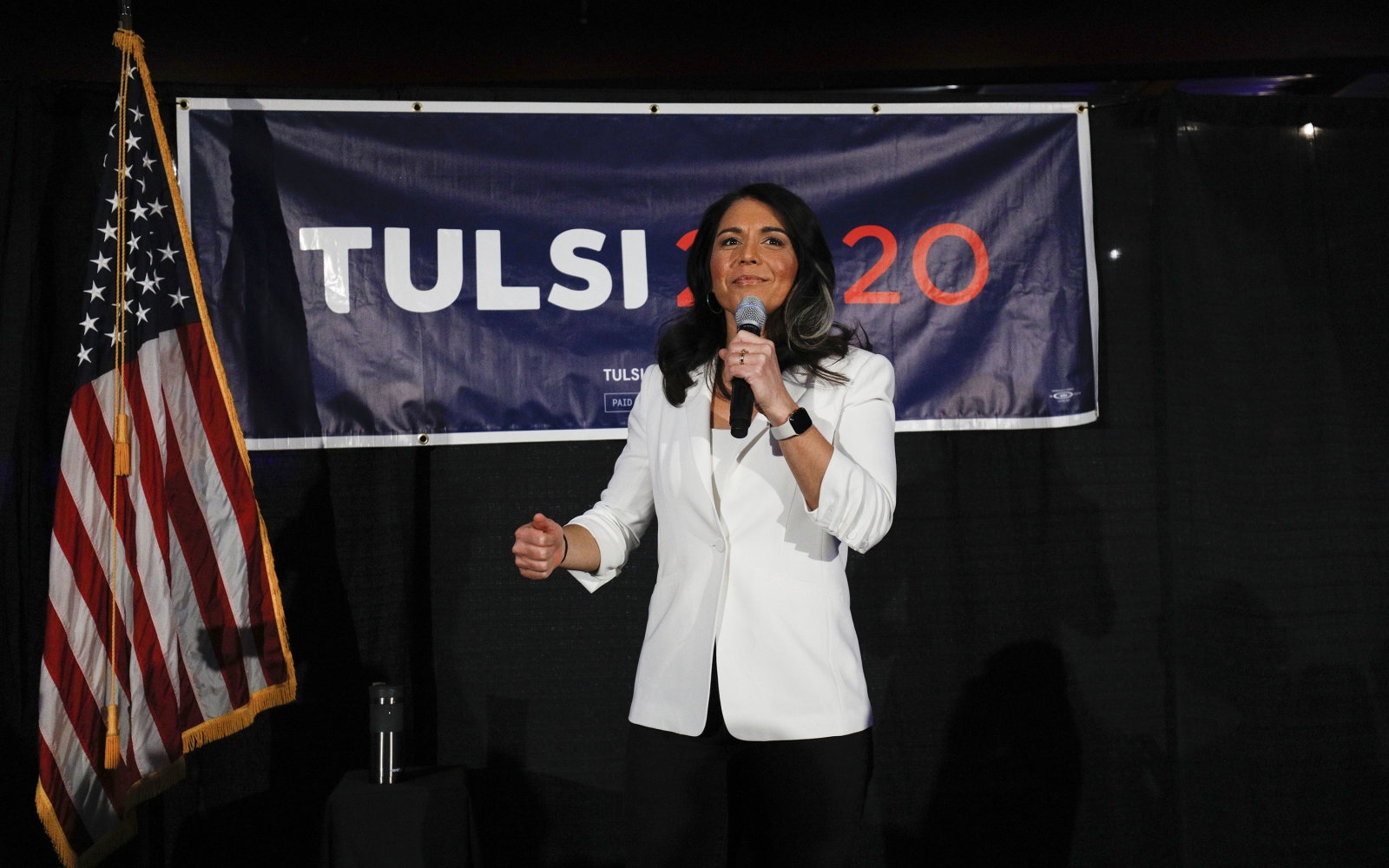A California judge has struck down longshot Democratic presidential candidate Tulsi Gabbard’s lawsuit against Google. Last fall, Gabbard sued the company for allegedly infringing on her right to free speech by temporarily suspending her campaign’s ad account. The Gabbard campaign, Tulsi Now, Inc., sought $50 million in damages.
Tuesday, US District Judge Stephen Wilson rejected the case, explaining that the campaign “fails to state a claim that is legally sufficient to implicate the First Amendment” and failed to show “how Google’s regulation of its own platform is in any way equivalent to a governmental regulation of an election.”
TULSI2020: In the hours following the 1st debate, while millions of Americans searched for info about Tulsi, Google suspended her search ad account w/o explanation. It is vital to our democracy that big tech companies can’t affect the outcome of elections https://t.co/n7Y7y2dQZ9
— Tulsi Gabbard ?? (@TulsiGabbard) July 25, 2019
Google originally explained that it suspended the Tulsi Now, Inc. ad account for suspicious activity. There was a sudden increase in spending after the first Democratic debate, and Google’s system automatically flagged the account, which was reinstated shortly.
“We are proud to offer ad products that help campaigns connect directly with voters, and we do so without bias toward any party or political ideology,” a Google spokesperson said at the time.
As Wilson pointed out, it’s common for tech companies to have some sort of automated system to detect cybercrime, and under Gabbard’s argument, “every media organization that took steps to prevent foreign cybercrimes could potentially implicate the First Amendment.”
“Google’s self-regulation, even of topics that may be of public concern, does not implicate the First Amendment,” he wrote.
This isn’t all that surprising, as Gabbard’s case never really had a chance. But it’s worth noting that Facebook has since used a similar argument — characterizing paid political advertising as free speech — to defended its decision to allow politicians to lie in political ads.
(15)

